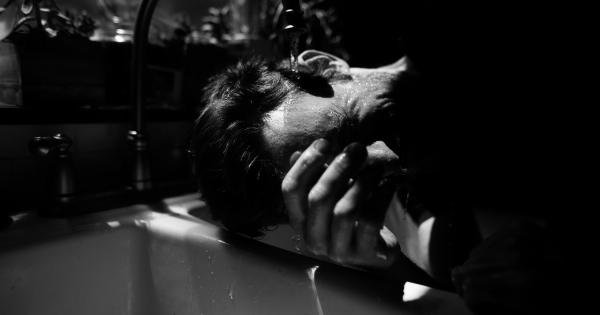Having dry hair can be a frustrating and confidence-damaging issue. It not only affects the look of your hair but can also be an indication of an underlying health problem.
Understanding the link between dry hair and overall health is crucial for both diagnosis and treatment. In this article, we will explore the causes, symptoms, treatments, and prevention strategies for dry hair.
Causes of Dry Hair
1. Lack of Moisture: One of the primary reasons for dry hair is a lack of moisture. This can be due to various factors such as excessive shampooing, exposure to harsh chemicals, and frequent use of heat styling tools.
2. Nutritional Deficiencies: A balanced diet is essential for healthy hair. Deficiencies in certain nutrients like vitamins A, C, and E, as well as minerals like zinc and iron, can lead to dryness and brittleness.
3. Underlying Health Conditions: Dry hair can be a symptom of underlying health conditions such as hypothyroidism, hormonal imbalances, psoriasis, or even diabetes.
If you have persistent dry hair, it is crucial to consult a medical professional for a proper diagnosis.
4. Environmental Factors: Your hair can become dry and damaged due to environmental factors like excessive sun exposure, humidity, and harsh weather conditions. These factors strip off the natural oils from your hair, leaving it dry and dull.
5. Overwashing: Washing your hair too frequently can strip away its natural oils, leading to dryness. It is recommended to wash your hair every two to three days to maintain its moisture balance.
Symptoms of Dry Hair
Recognizing the symptoms of dry hair is essential for early detection and effective treatment. Here are the common symptoms to look out for:.
1. Brittle and Split Ends: Dry hair tends to be more prone to breakage and split ends. If you notice an increase in split ends despite proper hair care, it may be a sign of dryness.
2. Dull and Lusterless Hair: Lack of moisture makes your hair lose its natural shine and luster, making it appear dull and lifeless.
3. Itchy or Flaky Scalp: Dry hair often goes hand in hand with an itchy or flaky scalp. This can be caused by the lack of natural oils on the scalp, leading to dryness and irritation.
4. Difficulty Styling Hair: Dry hair is challenging to style as it lacks flexibility and tends to be stiff and unmanageable. If you find it difficult to style your hair, it may be due to dryness.
5. Increased Hair Loss: While hair loss is a common occurrence, excessive hair shedding can be a sign of dryness. Dry hair is more prone to breakage, which can result in increased hair loss.
Treatments for Dry Hair
1. Hydrating Shampoo and Conditioner: Look for shampoos and conditioners specifically formulated for dry hair. These products contain moisturizing ingredients like coconut oil, shea butter, and glycerin to help hydrate and nourish your hair.
2. Deep Conditioning Treatments: Regular deep conditioning treatments can provide intense moisture to your hair. Opt for deep conditioning masks or treatments with ingredients like argan oil, jojoba oil, or avocado oil to restore and revive dry hair.
3. Avoid Heat Styling: Heat styling tools like straighteners and curling irons can further damage dry hair. Limit the use of these tools or use a heat protectant spray before styling to minimize damage.
4. Protective Hairstyles: Opt for protective hairstyles like braids, buns, or updos to minimize exposure of your hair to environmental factors and reduce moisture loss.
5. Trim Regularly: Regular trims help remove split ends and prevent further damage. It is recommended to trim your hair every six to eight weeks to maintain its health and prevent dryness.
Prevention Strategies for Dry Hair
1. Stay Hydrated: Drinking an adequate amount of water helps keep your hair hydrated from within. Aim for at least eight glasses of water per day.
2. Balanced Diet: Ensure your diet consists of a variety of fruits, vegetables, lean proteins, and whole grains to provide your hair with essential nutrients.
3. Protect from Sun and Harsh Weather: Use hats or scarves to protect your hair from excessive sun exposure or harsh weather conditions.
4. Limit Shampooing: Avoid excessive shampooing as it can strip away the natural oils from your hair. Stick to a gentle shampoo and consider skipping a wash day or two to allow your hair to retain its natural moisture.
5. Use a Wide-Toothed Comb: When detangling your hair, use a wide-toothed comb to minimize breakage and reduce stress on your hair strands.
Conclusion
Dry hair can be a result of various factors, including lack of moisture, nutritional deficiencies, underlying health conditions, environmental factors, and overwashing.
It is essential to recognize the symptoms of dry hair and seek appropriate treatments to restore moisture and prevent further damage. By following prevention strategies and adopting a proper hair care routine, you can improve the health and appearance of your hair. Remember, healthy hair is an indicator of overall health, so taking care of your hair is taking care of yourself.































